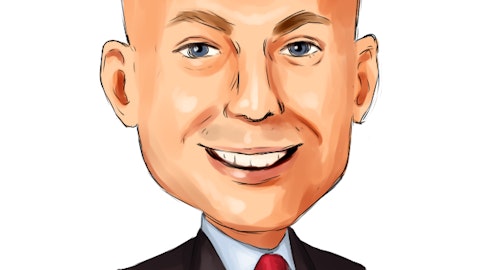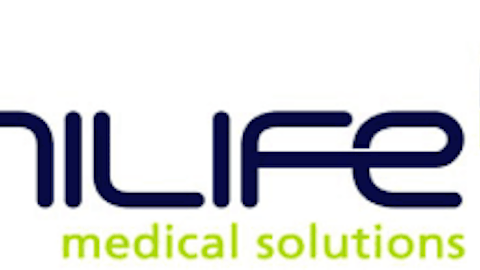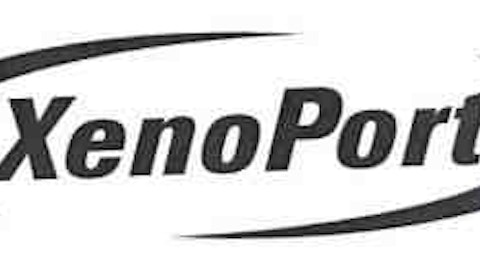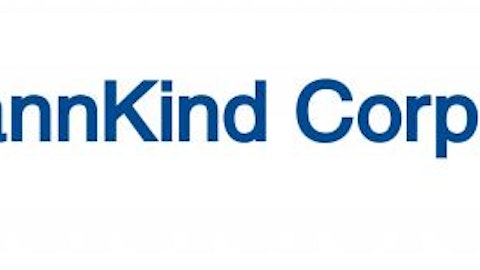Penny stocks are a risky investment, as many such companies have a product or products that are a long way from generating revenues (if they’re ever able to at all). However, if an investor can pick out the right candidate among these penny stocks, the future returns can be substantial. In order to increase these odds, we have decided to share five penny stocks from the healthcare sector that are the most popular among the hedge funds from our database, which implies that these money managers have rigorously researched these companies before assigning them a place in their equity portfolios. You can be sure that when these elite investors are collectively taking stakes in such obscure stocks, there is something noteworthy happening with those companies.

everything possible/Shutterstock.com
We track hedge funds and prominent investors because our research has shown that historically their stock picks delivered superior risk-adjusted returns. This is especially true in the small-cap space. The 50 most popular large-cap stocks among hedge funds had a monthly alpha of about six basis points per month between 1999 and 2012; however the 15 most popular small-cap stocks delivered a monthly alpha of 80 basis points during the same period. This means investors would have generated ten percentage points of alpha per year simply by imitating hedge funds’ top 15 small-cap ideas. We have been tracking the performance of these stocks since the end of August 2012 in real time and these stocks beat the market by over 60 percentage points (118% return vs. the S&P 500’s 57.6% gain) over the last 36 months (see the details here).
5. InspireMD Inc (NYSEMKT:NSPR)
Investors with Long Positions (as of June 30): 7
Aggregate Value of Investors’ Holdings (as of June 30): $3.02 Million
Even though the stock price of the $14.79 million medical device company has fallen by more than 76% so far this year, the hedge fund interest in the company has largely remained the same, with a reduction of one fund from the total number of investors during the second quarter, and a $1.67 million decrease in their total investments, mostly on the back of stock depreciation during the period. The hedge fund concentration in the company at the end of June amounted to 13.8% of InspireMD’s total shares. The biggest dip for InspireMD Inc (NYSEMKT:NSPR)’s stock came in early March when the company announced a public offering for $13.5 million. Steven Boyd‘s Armistice Capital is the largest stockholder of InspireMD Inc (NYSEMKT:NSPR), holding about 6.56 million shares valued at $1.84 million, and representing 8.41% of the company’s outstanding shares.
Follow Inspiremd Inc. (NASDAQ:NSPR)
Follow Inspiremd Inc. (NASDAQ:NSPR)
Receive real-time insider trading and news alerts
4. Mast Therapeutics Inc (NYSEMKT:MSTX)
Investors with Long Positions (as of June 30): 7
Aggregate Value of Investors’ Holdings (as of June 30): $6.75 Million
So far this year, Mast Therapeutics’ stock has depreciated by nearly 17%, while ‘hedgies’ turned slightly bearish towards the company during the second trimester, as their total investments decreased by $2.23 million, although the total number of hedge funds invested in the company remained unchanged. The aggregate value of investors’ holdings represented 8.5% of Mast Therapeutics’ shares. The biopharmaceutical company’s lead candidate is vepoloxamer, a drug for sickle cell disease. In August, Mast Therapeutics Inc (NYSEMKT:MSTX)’s CEO Brian Culley revealed that the company has completed 70% of the enrollment process for its Phase 3 study called EPIC, which is aimed at showing that vepoloxamer can reduce the duration of vaso-occlusive crisis; top line data is expected in the first quarter of 2016. Biotechnology Value Fund, managed by Mark Lampert, heads our list of Mast Therapeutics Inc (NYSEMKT:MSTX)’s shareholders, as it owns about 5.11 million shares valued at $2.51 million.
Follow Savara Inc (NASDAQ:SVRA)
Follow Savara Inc (NASDAQ:SVRA)
Receive real-time insider trading and news alerts
3. Vical Incorporated (NASDAQ:VICL)
Investors with Long Positions (as of June 30): 8
Aggregate Value of Investors’ Holdings (as of June 30): $9.43 Million
Vical Incorporated (NASDAQ:VICL)’s stock was soaring high in June when a couple of analysts issued a ‘Buy’ rating on the company, However, shares tumbled in the same month after disappointing results for the Phase 1/2 clinical study of the company’s genital herpes vaccine, which also resulted in many hedgies rolling back their stakes in the company. While the total number of hedge funds with holdings in the company fell by one, their total investments shrank by $6.11 million during the second quarter. The aggregate hedge fund holdings at the end of June amassed about 14.7% of Vical’s shares. Ariel Investments, which is managed by John W. Rogers is the largest stockholder of Vical Incorporated (NASDAQ:VICL) within our database and it raised its stake by 8% during the June trimester to 7.46 million shares valued at $5.22 million.
Follow Fresh Tracks Therapeutics Inc. (NASDAQ:FRTX)
Follow Fresh Tracks Therapeutics Inc. (NASDAQ:FRTX)
Receive real-time insider trading and news alerts
2. Discovery Laboratories, Inc. (NASDAQ:DSCO)
Investors with Long Positions (as of June 30): 8
Aggregate Value of Investors’ Holdings (as of June 30): $15.17 Million
Many professional money managers walked out of the company during the April-June quarter, which is not surprising given that Discovery Laboratories, Inc. (NASDAQ:DSCO)’s stock cratered by more than 44% during this period. The total number of hedgies with investments in the company dropped by three and the aggregate amount of shares they held was cut in half, falling by $15.31 million. At the end of June the aggregate investment still accounted for a hefty 26% of the company’s common shares. Discovery Laboratories’ stock is down by over 67% year-to-date. The $42.29 million specialty biotechnology company delivered a net loss per share of $0.13 in its financial results for the second quarter, which was in line with the estimates. Quarterly revenues of $0.08 million were however $0.19 million short of expectations. The company’s lead program AEROSURF aims to deliver aerosolized surfactant to premature infants suffering from respiratory distress syndrome. Kevin Kotler‘s healthcare-focused Broadfin Capital is the largest shareholder of Discovery Laboratories, Inc. (NASDAQ:DSCO) within our database, holding more than 7.82 million shares valued at $5.32 million.
Follow Windtree Therapeutics Inc (NASDAQ:WINT)
Follow Windtree Therapeutics Inc (NASDAQ:WINT)
Receive real-time insider trading and news alerts
1. Biodel Inc (NASDAQ:BIOD)
Investors with Long Positions (as of June 30): 9
Aggregate Value of Investors’ Holdings (as of June 30): $16.27 Million
The $41.02 million specialty pharmaceutical company gained a significant increase in traction from hedge funds during the second quarter, despite the stock price tumbling by 50% on a year-to-date basis. Three additional hedge funds had long positions in the company and their aggregate investment increased by $13.64 million in the second quarter. At the end of June the concentration of hedge fund investment in Biodel stood at 25.4%. Biodel Inc (NASDAQ:BIOD) is focused on the development of treatments for diabetic patients and its lead candidate is the Glucagon Emergency Management (GEM) program, which comprises lyophilized glucagon and a liquid diluent in a proprietary injection device from Unilife Medical Solutions Incorporated. The product is new in the sense that it simplifies the administration of glucagon, thereby reducing caregiver training requirements, the likelihood of dosing hours, and also the time required to deliver the rescue therapy. In the first quarter the company announced positive data from the Phase 1 trial of the related BIOD-961. Among Biodel Inc (NASDAQ:BIOD)’s top ten stockholders within our database, Hal Mintz‘s Sabby Capital was the most bullish on the company during the June trimester, raising its stake by 429% to 1.15 million shares valued at $1.18 million.
Follow Albireo Pharma Inc. (NASDAQ:ALBO)
Follow Albireo Pharma Inc. (NASDAQ:ALBO)
Receive real-time insider trading and news alerts
Disclosure: None




